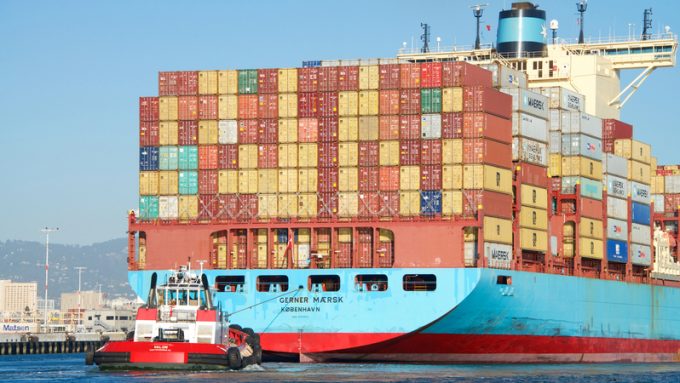Legal wrangle over terminal project could hobble South African port efficiency hopes
Continued congestion at South African ports hit by high winds has brought calls for a ...

Maersk has reportedly reduced its planned mid-September transpacific GRIs, thought to be due to China’s move to step in to reduce freight rates on the trade.
Last week, Zest Shipping Media reported that Chinese authorities planned to interfere in pricing and capacity management on the transpacific as rates soared to record highs.
Dennis Zhou, founder of Zest, noted this morning that Maersk had quoted $4,200 for US west coast, and $5,000 for the east coast, and it was now $3,900 and $4,700, ...
Volcanic disruption at Anchorage could hit transpacific airfreight operations
Macron calls for ‘suspension’ – CMA CGM's $20bn US investment in doubt
De minimis exemption on shipments from China to the US will end in May
Forwarders stay cool as US 'liberation day' tariffs threaten 'global trade war'
Trump tariffs see hundreds of cancelled container bookings a day from Asia
Mixed response in US to 'Liberation Day', while China leads wave of retaliation
Tariffs and de minimis set air freight rates on a volatile course


Comment on this article